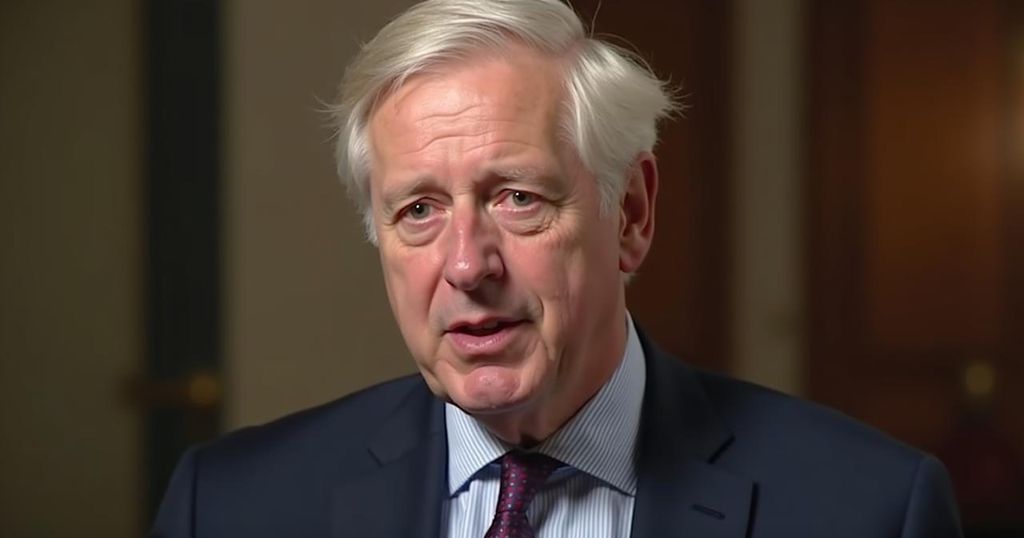David Cameron Advocates for Sanctions Against Israeli Ministers to Uphold International Law

Former UK Prime Minister David Cameron has proposed sanctions against Israeli ministers Bezalel Smotrich and Itamar Ben-Gvir, citing their “extremist” actions and statements. He emphasized that such sanctions would signal to Israeli leadership about compliance with international law. The proposed sanctions were delayed due to political considerations during the election and the need for coordinated international action.
Former UK Prime Minister David Cameron has advocated for the United Kingdom to impose sanctions on two Israeli ministers, Bezalel Smotrich and Itamar Ben-Gvir, in a bid to encourage adherence to international law. Speaking on the BBC’s Today program, Lord Cameron described the ministers as “extremists” and suggested that sanctions would serve as a clear message to Israeli Prime Minister Benjamin Netanyahu to reconsider his government’s actions. Cameron’s remarks come in light of the ministers’ controversial statements and actions, including their encouragement of extreme settler activities in the West Bank and harmful remarks regarding humanitarian assistance to Gaza. For example, Smotrich previously suggested that it might be “justified and moral” to starve Gazans and has made inflammatory comments about Palestinian displacement. While discussing why the proposed sanctions had not been enacted before the recent elections, Lord Cameron noted he had been advised that introducing such measures during the campaign would be perceived as politically charged. Cameron indicated that plans for potential sanctions, which included a travel ban and asset freezes for both ministers, were well-developed but ultimately postponed due to concerns over political backlash and possible escalations in violence within divided constituencies. The UK government, under Foreign Secretary David Lammy, has expressed severe disapproval of the ministers’ behavior, stating that they are “entirely unacceptable”. Lammy emphasized that the situation will be monitored closely and that further action, including sanctions, is still on the table, particularly in consultation with G7 allies and European partners. Despite the preparations for sanctions, it is suggested that any official decision on further measures may be delayed to avoid interference in U.S. election dynamics and due to the limited leverage the UK holds over Israel. Additionally, some analysts have pointed out that sanctioning officials of an allied nation is unprecedented for the UK and would require extensive legal groundwork, which is currently hampered by resource constraints within the Foreign Office. Cameron summarized his viewpoint by stating that while the UK must support Israel’s right to defend itself, this support should not equate to unconditional endorsement of all its actions. He argued for a balanced approach that facilitates humanitarian aid to Gaza while reconsidering arms sales to Israel.
The conversation around sanctions on Israeli ministers arises amid ongoing tensions between Israel and Palestine and follows a series of controversial statements and actions taken by certain Israeli officials. Following significant escalations in violence, there has been a renewed call from some UK officials to address what they perceive as violations of international law by Israeli leadership. The political environment in the UK and international relations further complicate the issuance of sanctions, particularly given the historical alignment between the UK and Israel, and the existing dynamics of U.S. foreign policy.
In conclusion, David Cameron’s recent remarks highlight the complexities and political sensitivities surrounding the potential imposition of sanctions on Israeli ministers. While there are significant concerns regarding their actions, any decisions regarding sanctions require careful consideration of domestic and international implications. The UK government is likely to navigate a challenging terrain, balancing the support of Israel with the need for adherence to international norms and humanitarian principles.
Original Source: www.bbc.com








